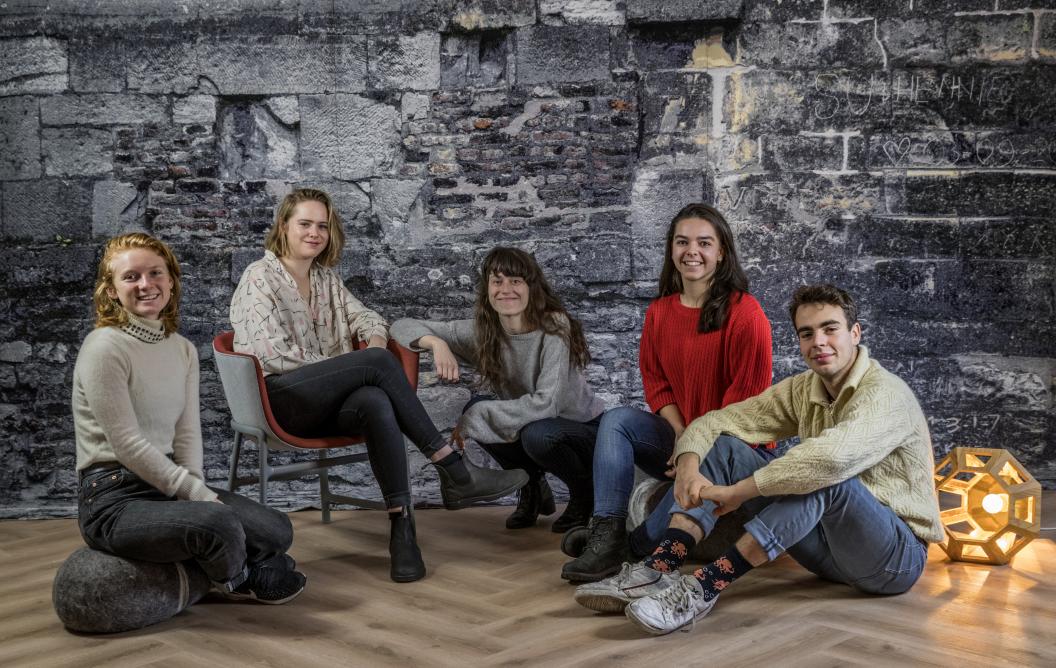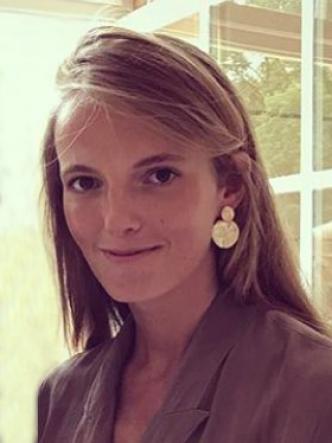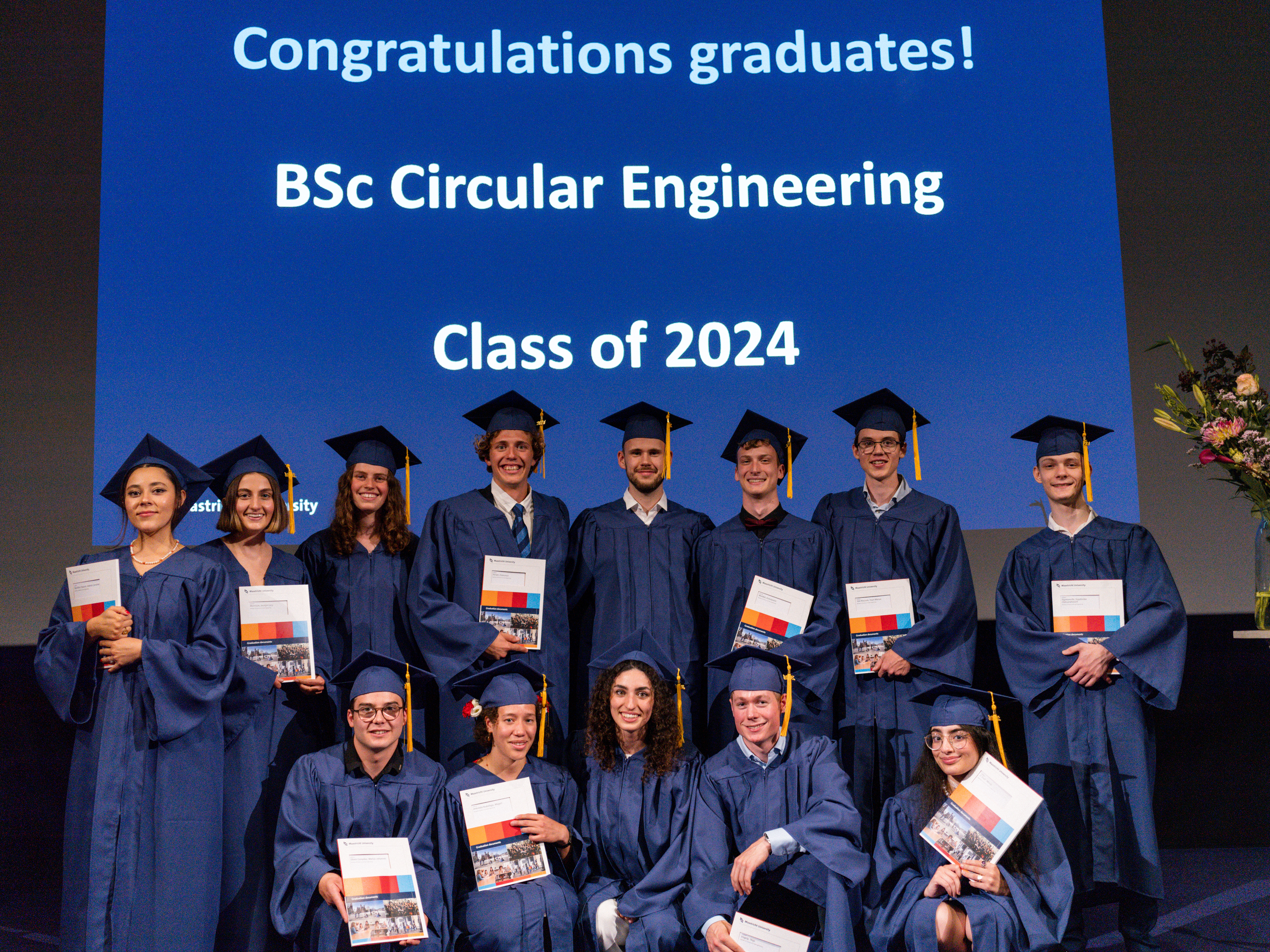Don’t throw your plastic waste away!
Precious Plastic Maastricht came on in leaps and bounds in 2019. The student-led sustainability campaign was received with enthusiasm and brought Maastricht residents together in playful initiatives. The team has big plans for the future, with the ultimate goal of building four recycling machines for plastic waste. “What’s in Maastricht stays in Maastricht – that should become the new norm when it comes to plastic.”
Even disposing of your plastic waste in a special bin is not environmentally friendly, project manager May Elise Sturman explains. “Much of the plastic waste collected in European countries is transported away from Europe, mainly to places in Asia, where it is destroyed in an environmentally unfriendly way or simply disappears. At Precious Plastic Maastricht, we want to raise awareness and show people how they can live more sustainably, for example by recycling plastic locally themselves.”
Shred and melt
In January 2019, Ezekiel Stevens put out a call in the Facebook group of his study programme, the Maastricht Science Programme (MSP). Was anyone keen to join a special local project? Stevens was inspired by Dave Hakkens, initiator of the global sustainability community Precious Plastic and designer of the associated machines that people can build themselves and use to recycle plastic. The process has just three steps: shred, melt and transform. Waste products such as packaging and squeeze bottles are given a second life as rubbish bins, beams, artworks and more. With Precious Plastic and its machines catching on all over the world, Stevens figured it was high time for Maastricht to join the movement. Many interested students responded to his call, and before long the Precious Plastic Maastricht team was established.
Prize-winning pen project
“The UM Student Idea Competition seemed like a good tool to put us on the map and create a network within the university”, says project manager Perine Fleury. “We submitted an entry focused on collecting and recycling used-up pens. Much to our surprise, we won!” Look around the university for collection bins for old writing implements, however, and you won’t find anything yet. “Right now we’re focused on building the recycling machines”, says Stevens, the project manager. “We’ve finished the first device, the shredder. With the money we raised during the For Each Other 2019 campaign, we’ll finish the three other machines that melt and transform the shredded material. When we’ve created the machines, we’ll look further; for example at research on bioplastics and the pen project.”

Stichting Precious Plastic Maastricht is a student led initiative, established in February 2019, tackling both plastic over-consumption and waste in Maastricht. The team consists of Perine Fleury, Kodie Chontos, May Elise Sturman, Emma Prins, Ezekiel Stevens (Maastricht University) and Hannah Bosland (Zuyd University of Applied Sciences).
Support Precious Plastic Maastricht
Would you like to make a donation to this project via the ‘For Each Other’ campaign? Visit www.umcrowd.nl.

Photography: Harry Heuts / Maastricht University
Sustainability connects
The machines are expected to be ready in September 2021. Then, Maastricht residents will be welcome during open days to come and recycle their plastic waste in the Precious Plastic Maastricht workplace. This will in turn bring students and city residents into contact with one another, enhancing mutual cooperation and understanding. “It’s cliché but true: sustainability connects”, says communication manager Kodie Chontos. “We saw that during our Mass Maas Clean-Up Festival in June, when over a hundred students and residents joined forces to clean up the city centre and learn more about local reuse. And at the Bruis Festival, where over 7,000 festival visitors donated to us the deposit they had paid for their plastic cups. There’s a lot of demand for sustainability initiatives and group activities in Maastricht.”
No finger-wagging
The students notice that many people would like to play their part in solving the plastic problem. And they can: more quickly and easily than they might expect, even on an individual basis and with the recycling machines not yet functional. Sturman: “Shop at the market or at zero-waste stores, take your own bags for groceries, tell supermarkets you no longer buy products in plastic packaging, or try to live one day a week with less or even no plastic. You can find all sorts of tips on the internet.” “That said,” Fleury adds, “we’re not here to wag our fingers at people. Our goal is to show how easy but also how pleasant it can be to live more sustainably.”
Are you there For Each Other?
Maastricht University is committed to the important tasks of teaching and research, with the ultimate aim of building a better society. As ever, the University Fund Limburg/SWOL supports UM in this effort. But your support, too, is essential.
In the ‘For Each Other 2019’ campaign, we are seeking contributions to four special UM projects: scholarships for disadvantaged students, an app for research on women with chronic pain, a plastic recycling workshop and an animal experience room for hospitalised children. In the weeks leading up to and during the campaign, we will publish a series of articles shining a spotlight on each of the four projects.
By: Milou Schreuders
Also read
-
Aleksandra Komornicka has received a Veni grant of € 320,000 from NWO for her project ‘The Market Next Door: Western European Multinationals and the Remaking of Central Europe, 1969-1993’.
-
"We are the pioneers in a brand-new field of engineering sciences, not just in Maastricht but globally as well", says Francesco Ferrari about the group of thirteen students, himself included, who in July received the first bachelor's degree in Circular Engineering.
-
Moving orange spots on a yellow background are the first indication that something unusual is taking place in Maastricht's limestone quarry, Sint-Pietersberg. A closer look reveals that these are people clothed in orange vests. They are Maastricht Science Programme students and supervisors.

